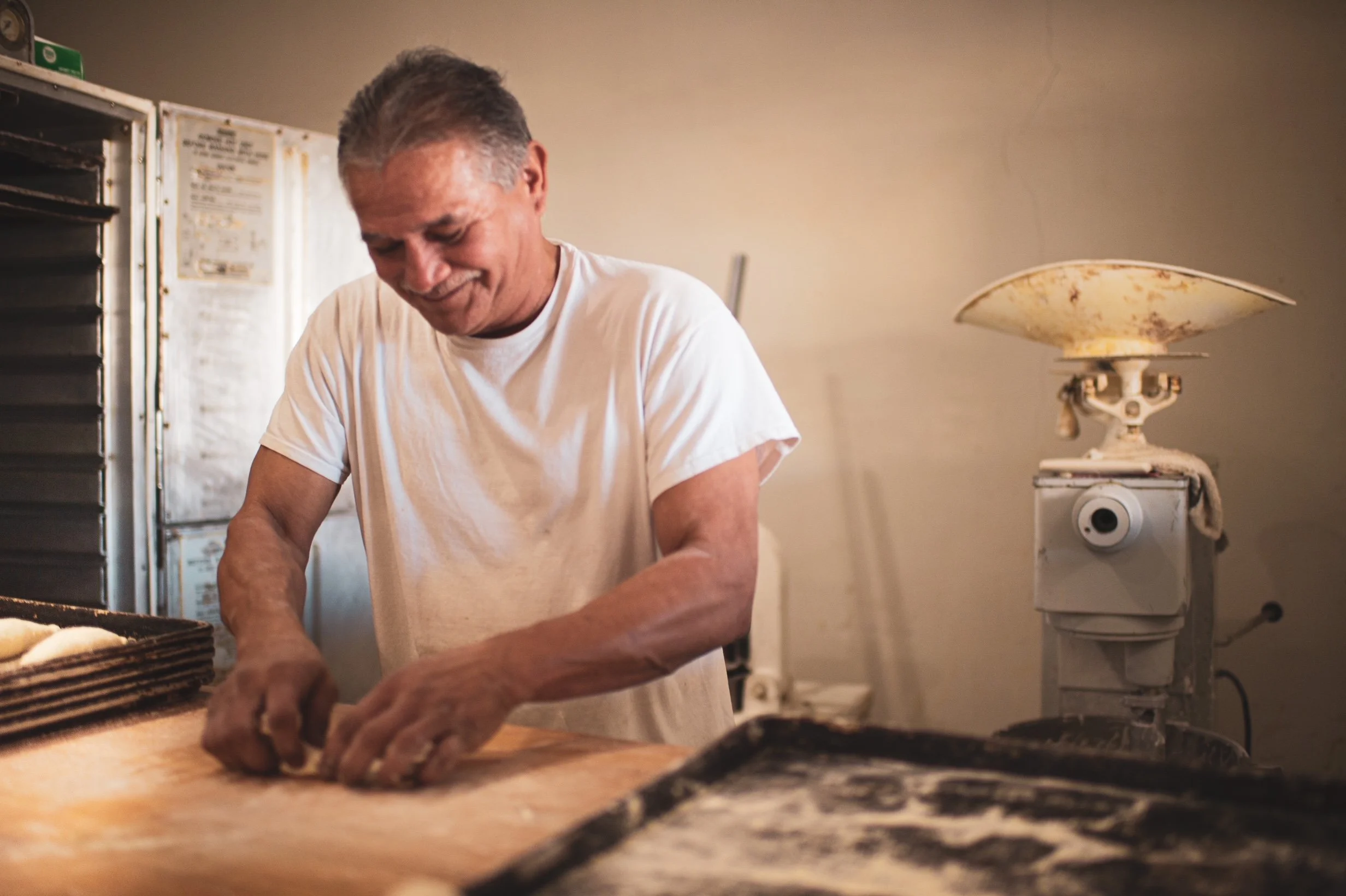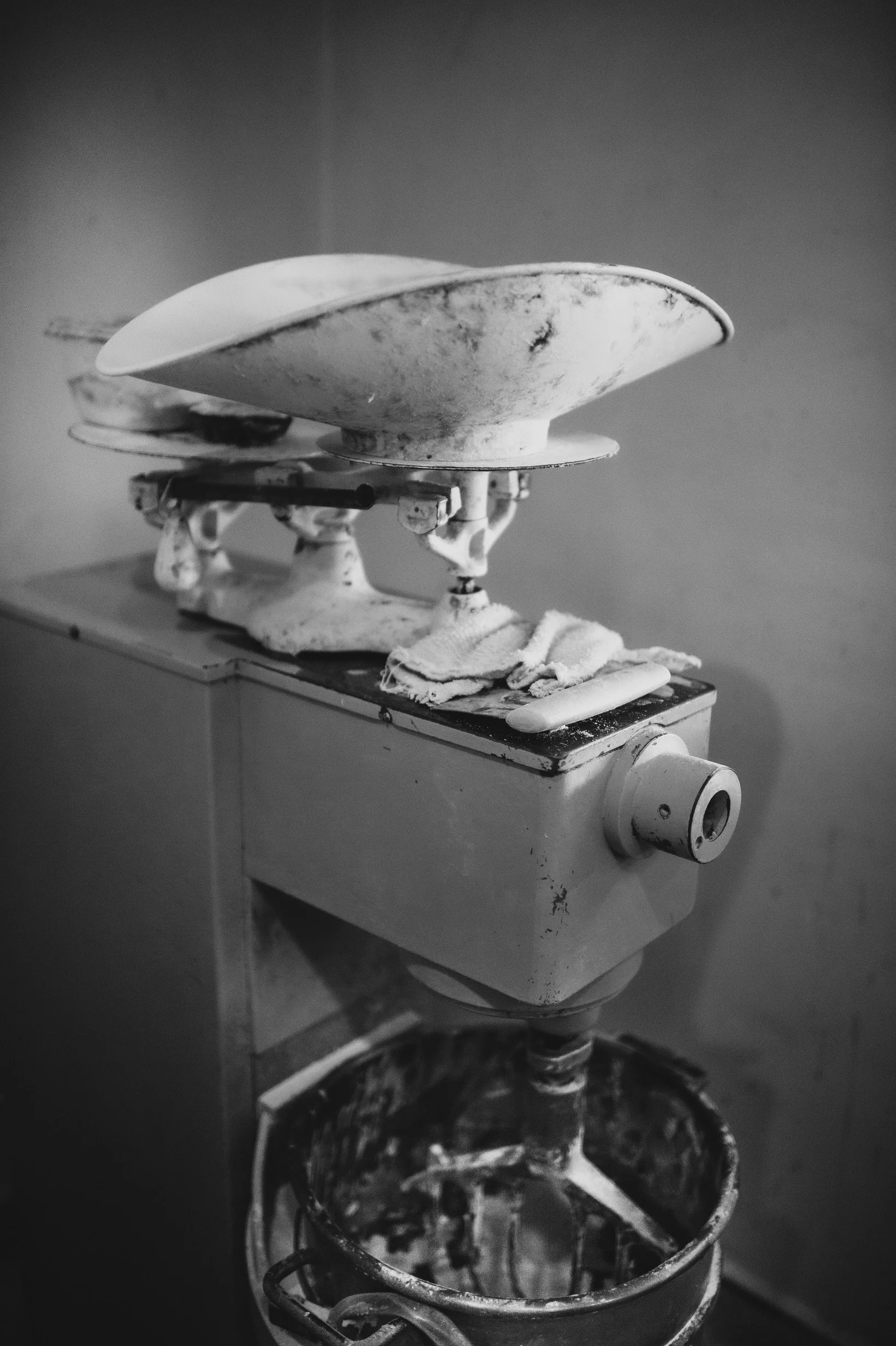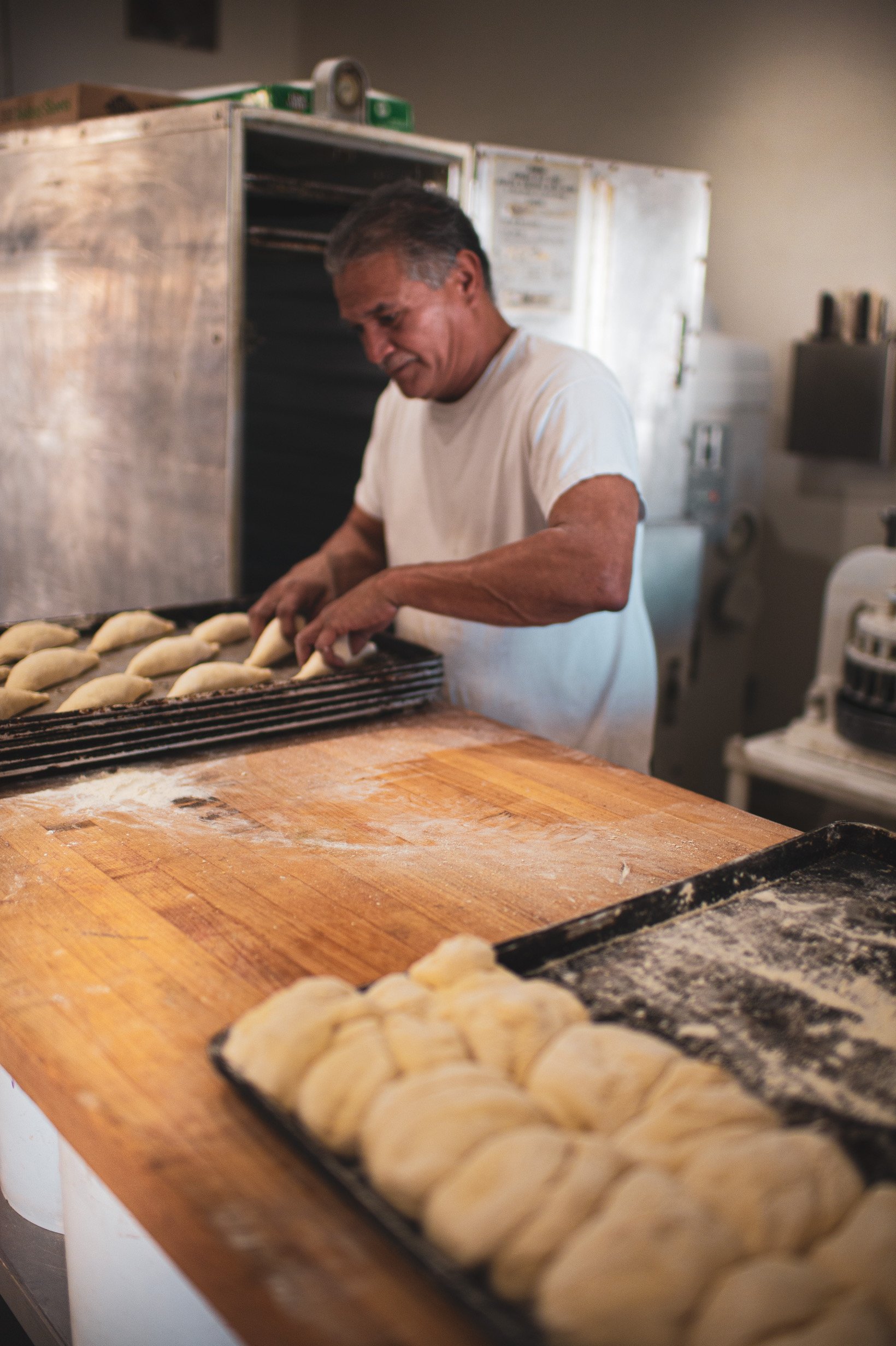ROSCA DAY
ROSCA DAY
Panaderia Herrera
Rosca de reyes por el dia de los reyes magos……la epifania
He asked Eric to put the phone in his pocket. That’s what he was there for, to answer the phone…..and jam up the roscas but the jamming process was few and far between on this Friday morning. The big day was Saturday. I looked over at Chris. With Eric nowhere in sight Chris had either his head in the mixer or was throwing dough on the butcher block table with the phone under his chin taking orders…..”Un mediana son treinta”. Thirty dollars for the Rosca, pick up January 6th, El Dia de los Reyes Magos, otherwise know as Three Kings Day.
I met Chris Herrera a few months ago on my taco tour. He is the baker and proprietor of Panaderia Herrera on Ventura Avenue. I was taken by his welcoming nature. Upon me asking to take a peak through the doorway and into his bakeshop he responded a relaxed and nonchalant “sure”. It isn’t so common now a days to find people willing to let you walk into their kitchen. Competition has people protective and ego has them suspicious that perhaps you are there to take and not simply observe, appreciate and maybe learn a thing of two. As Chris says, “ There are no secrets. You can show a million people how to do it, but they’ll never do it your way”. This philosophy is true. There are so many formulas and recipes in this world riffing off the same things, but it is what we do with them that makes the difference. This truth is freedom. It opens a door to genuine connections and anyone and everyone wanting to witness and learn. It is a gift.
Perhaps this wisdom comes from time. Chris opened his bakery on the avenue thirty seven years ago. He is fifty six years old and has been baking since he was a young boy. His father taught him. They would bake at home and the wafting fresh bread aroma had neighbors banging on the door. They started selling bread on the streets of Oxnard. Soon thereafter his father opened up a shop and Chris followed suit with his own bakery in his late teens.
It is a family affair, as Chris’ father walks into the shop to drop off a few bags of flour. “JEFE”! He grabs a coffee and Chris pulls a plastic jug of milk from beneath the table. I think they talk of pastries and Christmas but my Spanish is rusty to say the least. All the while dough is being mixed, laminated, rolled, shaped, and baked.
Three days prior, on a whim, I had stopped by the panaderia. I gathered nerve and walked inside. I asked Chris if he made Rosca de Reyes. He said yes. I asked if I could come watch. He said yes. “Come in on Friday at 10:30”. He said Saturday would be too hectic and I’d be in the way. I am partial to a baker’s frankness when it comes to production. I tell people when they come into my shop not to take it personally. We have a job to get done and that’s the only thing on the docket. Feelings don’t have a place in the mix, until everything is sold and out the door. Chris is as honest and I smile at his straight forward nature and laugh as he tells me to get my things out of the way or he steps outside to smoke a cigarette by himself with his half pitbull with the blue eyes.
He runs eighteen Roscas an hour on January 6, Three Kings Day. Starting at six in the morning he has breads in and out of the oven until seven at night. He does not call it Three Kings Day. He calls it Rosca Day. Rosca de Reyes is an ornate sweet bread decorated to look like the crown of a king. It is an oval ring that represents the love of God and decorated with fruits, ,jams, nuts, and sugar to represent the jewels on the kings crowns as they visited the newly born baby Jesus. Hence, a little plastic baby Jesus is placed inside the bread. The tradition says that whoever finds the baby Jesus in their slice of Rosca has good luck but also has to host a party of tamales for their family and friends on El Dia de la Candelaria on February 2. I have read that finding the little plastic baby is far from lucky to some and they slyly swallow baby Jesus to get out of making tamales. The mysterious disappearance of Baby Jesus becomes part of the holiday and could be blamed on the baker for forgetting to put one in the dough.
Traditions grow and change but Rosca has remained strong. It is said it’s lineage stems from the French Kings Cake or Galette de Rois whose traditions moved to Spain and migrated on to latin America in the 20th century when Spaniards fled to Mexico during the Spanish Civil War in 1936. The once used acitron of red and green to adorn the epiphany bread is no longer available as the cactus from which it derives is now endangered and has been listed an endangered species by the Mexican government since 2005. Instead, jicama and quince paste have become common alternatives, although Chris uses straight up strawberry jam and pastry cream. To each his own and the decorative process of each Rosca can be quite a creative endeavor.
Chris runs his shop Monday through Friday every week. He starts work at 9:30 in the morning and sells his baked goods to afternoon customers. He doesn’t believe in the early bakery mornings and finds killing himself on the busy weekends doesn’t make much sense or bring him much joy. He runs four doughs that produce roughly fifteen to twenty different products on a given day and he will rotate through them as his mood suggests. He has designed a system that works for him, as a solo baker with many years behind his belt. The ease at which he moves through his space, from mixer to table to oven is instinctual, as the speed at which he shapes each pastry admirable. Time and dedication has culminated in deep skill and ease at the dough table and an ability to smile through the work. Herrera’s bakery is a classic Panaderia. He does not adhere to the fads of European breads and sourdoughs or the classical pastries of the French kitchens. He bakes bread from his Hispanic heritage or even more aptly, his family heritage. He bakes the bread his community enjoys. The Pan Dulce from his dad’s kitchen they sold on the streets of Oxnard.
















